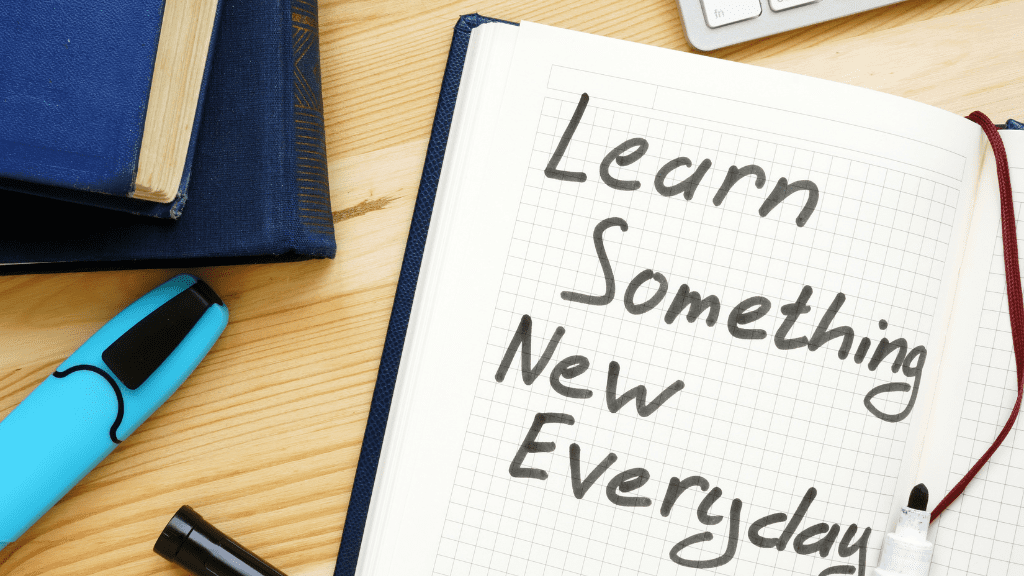
Unlock Your Potential: A Guide to Lifelong Learning
Imagine a world where learning isn’t confined to classrooms or textbooks. A world where the thirst for knowledge and the pursuit of new skills are lifelong companions. This, my friends, is the world of lifelong learning. It’s not just about acquiring fancy degrees or certifications; it’s about embracing a growth mindset and embarking on a continuous journey of exploration and self-discovery. Let’s dive into this article to nurture our lifelong learning mindset and learn how to apply them in out life!

What is lifelong learning?
Lifelong learning is the concept of continuously seeking knowledge and acquiring new skills throughout your life. It’s not limited to formal education like schools or universities; it encompasses a wide range of learning experiences that happen throughout your lifetime.
Here are some key characteristics of lifelong learning:
- Voluntary and Self-Motivated: It’s driven by your own curiosity, desire for personal growth, or career advancement.
- Lifelong Pursuit: It’s an ongoing process that doesn’t stop after a certain age or educational attainment.
- Diverse Learning Methods: It can involve formal courses, online resources, workshops, self-directed learning through books or hobbies, and even everyday experiences that challenge your perspective.
Remarkable examples of lifelong learning individuals

Here are some famous examples of lifelong learners who have continuously strived for knowledge and self-improvement throughout their lives:
1. Leonardo da Vinci (1452-1519) – top 1 lifelong learning example:
A true Renaissance Man, da Vinci wasn’t just a painter and sculptor. He was an anatomist, inventor, engineer, and scientist. His insatiable curiosity led him to explore diverse fields, constantly sketching, experimenting, and pushing the boundaries of knowledge.
2. Nelson Mandela (1918-2013):
Mandela’s lifelong learning went beyond academics. While imprisoned for 27 years, he continued to educate himself, reading voraciously and even studying law through correspondence courses. This dedication to learning equipped him to become a transformative leader upon his release.
3. Marie Curie (1867-1934):
A pioneer in radioactivity research, Marie Curie faced numerous challenges as a woman in science. Yet, she never stopped learning, conducting groundbreaking research well into her later years. Her dedication to scientific discovery serves as an inspiration for lifelong learners everywhere.
4. Grandma Moses (Anna Mary Robertson Moses) (1860-1961):
Grandma Moses didn’t start her artistic career until her 70s. Encouraged by her family, she began painting scenes from her rural life, achieving international acclaim in her later years. Her story exemplifies how it’s never too late to pursue new passions and develop creative skills.
5. Benjamin Franklin (1706-1790):
One of the Founding Fathers of the United States, Benjamin Franklin was a polymath with a thirst for knowledge. He was a writer, scientist, inventor, and diplomat, constantly learning new skills and engaging in intellectual pursuits throughout his life.
6. Miyamoto Musashi (1584-1645):
A legendary Japanese swordsman, Musashi wasn’t just focused on physical prowess. He believed in the importance of mental and spiritual development. He studied philosophy, strategy, and even wrote a book on swordsmanship, demonstrating that lifelong learning extends beyond the battlefield.
7. Yuichiro Miura (born 1932):
This Japanese mountaineer is the oldest person to summit Mount Everest at 80 years old. He didn’t stop there, going on to climb the Seven Summits (highest peaks on each continent) by the age of 85. Miura’s story exemplifies the power of setting ambitious goals and maintaining physical fitness through lifelong learning and exploration.
These are just a few examples, and the list can go on. The beauty of lifelong learning lies in its universality – it’s a pursuit open to everyone, regardless of age, background, or profession. By embracing a growth mindset and seeking new knowledge, you too can join the ranks of these lifelong learners and enrich your life in countless ways.
How to cultivate lifelong learning mindset?

Here are some ways to cultivate a lifelong learning mindset:
Embrace a Growth Mindset for lifelong learning:
- Believe in your ability to learn and grow: Shift from a fixed mindset (“I can’t do this”) to a growth mindset (“This is a challenge, and I can learn from it”).
- Celebrate mistakes: View them as opportunities to learn and improve, not failures.
- Focus on effort: Recognize that learning takes time and dedication, appreciate the effort you put in, not just the outcome.
Spark Curiosity:
- Ask questions: Don’t be afraid to ask questions, even if they seem basic. Curiosity is the fuel for learning.
- Explore new things: Step outside your comfort zone and try new activities, hobbies, or courses.
- Read widely: Read books, articles, and blogs on a variety of topics to broaden your knowledge base.
Set Learning Goals:
- Identify areas of interest: What are you curious about? What skills do you want to develop?
- Set SMART goals: Make your learning goals Specific, Measurable, Achievable, Relevant, and Time-bound.
- Break down large goals: Chunk big learning goals into smaller, manageable steps.
Develop Learning Habits:
- Schedule dedicated learning time: Block out time in your day or week specifically for learning.
- Find a learning buddy: Partner with someone who shares your interests and hold each other accountable.
- Utilize diverse learning resources: Explore online courses, podcasts, audiobooks, workshops, and documentaries.
- Practice active learning: Don’t just passively consume information; engage with it through discussions, note-taking, or applying what you learn.
Celebrate Your Progress:
- Track your learning: Keep a journal or log your progress to stay motivated.
- Reward yourself: Acknowledge your accomplishments and celebrate your learning journey.
- Share your knowledge: Teaching others what you’ve learned reinforces understanding and strengthens connections.
Some notes when applying lifelong learning:
- Lifelong learning is a journey, not a destination. Enjoy the process of discovery and exploration.
- There’s always something new to learn. Embrace the vastness of knowledge and the joy of continuous learning.
- Learning should be fun and engaging. Find ways to make learning enjoyable and relevant to your interests.
By incorporating these tips and adopting a growth mindset, you can cultivate a lifelong learning habit and enrich your life with new knowledge, skills, and experiences as well.
See also:
Reference checking: How to prepare and increase chance to pass?
